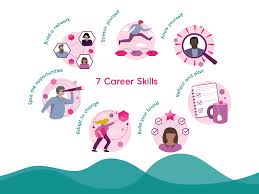Effective time management is a critical skill for students, influencing their academic performance, stress levels, and overall well-being. Mastering time management helps students balance their studies, extracurricular activities, and personal lives. This article explores why time management is essential for students and provides practical tips to enhance this crucial skill. 1. Why Time Management Matters Effective time management offers several key benefits for students: Improved Academic Performance: Managing time efficiently allows students to allocate sufficient time for studying, completing assignments, and preparing for exams. This leads to better understanding and higher grades. Reduced Stress: By organizing tasks and planning ahead, students can avoid last-minute cramming and deadlines. Effective time management helps reduce anxiety and creates a more manageable workload. Enhanced Productivity: Prioritizing tasks and setting clear goals enable students to work more efficiently. This helps in maximizing productivity and achieving better results with less effort. Balanced Lifestyle: Time management helps students balance academic responsibilities with extracurricular activities, social life, and personal time. A well-rounded schedule promotes overall well-being and prevents burnout. Development of Essential Skills: Mastering time management builds essential life skills such as organization, discipline, and goal-setting, which are valuable in both academic and professional contexts. 2. Strategies for Effective Time Management Implementing effective time management strategies can help students optimize their time and achieve their goals: Set Clear Goals: Define specific, achievable goals for both short-term and long-term tasks. Having clear objectives helps students stay focused and motivated. Create a Study Schedule: Develop a weekly or daily study plan that outlines time blocks for studying, attending classes, and completing assignments. Stick to this schedule to establish a consistent routine. Prioritize Tasks: Use techniques like the Eisenhower Matrix to prioritize tasks based on their urgency and importance. Focus on high-priority tasks first and manage less critical tasks accordingly. Use a Planner or Digital Tools: Utilize planners, calendars, or digital tools like Google Calendar or task management apps to keep track of deadlines, appointments, and study sessions. Regularly review and update your schedule. Break Tasks into Smaller Steps: Divide larger tasks or projects into smaller, manageable steps. This makes tasks less overwhelming and helps maintain steady progress. Avoid Procrastination: Address procrastination by setting specific deadlines and using techniques like the Pomodoro Technique, where you work for a set period and take short breaks. Manage Distractions: Identify common distractions and find ways to minimize them during study sessions. This may include turning off notifications, creating a quiet study environment, or using apps that block distracting websites. Incorporate Breaks: Schedule regular breaks during study sessions to rest and recharge. Short breaks can improve concentration and prevent fatigue. 3. Balancing Academics and Personal Life Effective time management helps students balance their academic responsibilities with other aspects of life: Plan for Extracurricular Activities: Allocate time for extracurricular activities, hobbies, and social events. Balance these activities with academic commitments to maintain a well-rounded lifestyle. Schedule Personal Time: Reserve time for relaxation, self-care, and personal interests. Ensuring that you have time for yourself is essential for maintaining mental and emotional health. Set Boundaries: Establish boundaries between study time and personal time. Avoid letting academic work encroach on personal activities and vice versa. 4. Overcoming Time Management Challenges Students may face challenges in managing their time effectively. Here’s how to overcome them: Overcome Perfectionism: Strive for progress rather than perfection. Accept that it’s okay to make mistakes and learn from them, rather than aiming for unattainable perfection. Adapt to Changes: Be flexible and adapt your time management strategies as needed. Unexpected events or changes in priorities may require adjustments to your schedule. Seek Support: If you’re struggling with time management, seek support from academic advisors, mentors, or counselors. They can provide guidance and strategies to help you improve. 5. The Long-Term Benefits of Time Management Developing strong time management skills has long-term benefits: Career Success: Effective time management is crucial in professional settings. Employers value employees who can manage their time efficiently, meet deadlines, and handle multiple tasks. Personal Growth: Time management fosters self-discipline and responsibility, contributing to personal growth and the ability to achieve long-term goals. Enhanced Quality of Life: Balancing academic, personal, and professional responsibilities leads to a more fulfilling and less stressful life.
The Importance of Time Management for Students
Time management is a vital skill that significantly impacts students' academic performance, stress levels, and overall quality of life. By setting clear goals, creating schedules, prioritizing tasks, and managing distractions, students can enhance their productivity and achieve a balanced lifestyle. Mastering time management not only improves academic success but also equips students with essential life skills for the future.
- Details

